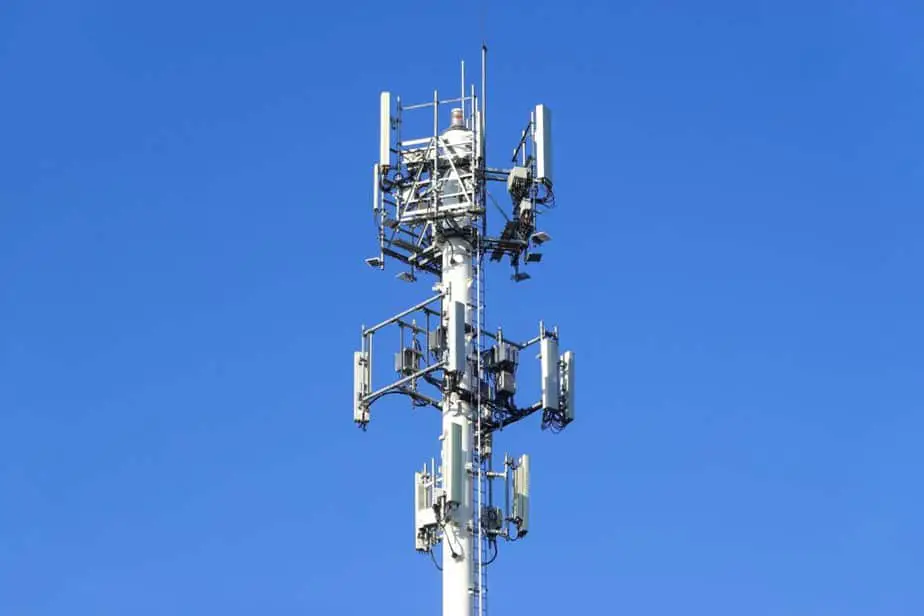Introduction
With the latest innovations in technology, various networking methods are used according to their need. For example, 5G, or the Fifth generation, is the recent development in cellular networking. It can be considered an updated version of 4G. Optic fiber is a broadband internet connection that uses fiber cables rather than copper cables. Both of these means are widely used with their merits and demerits. Let us know ‘5G Vs Fiber’.

It is expected that the growth of 5G Vs Fiber both will increase by 20% in upcoming years. While 5G is the latest invention, it has a speed of 10-20Gbps (billions of bits per second) whereas Fiber has a speed of around 100Gbps. It is predicted by Ericsson that by 2024, 5G networks will reach 1.9 billion subscribers, allowing it to carry 35% of data traffic. It can be said that in forthcoming years, both connections will be used according to ease.
What is 5G?
In the world of Telecommunication, 5G is a recent development after 4G LTE (Long term evolution) that has a 20% faster speed than the latter.
Working:
The data via radio waves is sent by wireless networks. The 4G LTE serves as the foundation block of the 5G connection. These signals are communicated through small cell stations. A large amount of small cells is used because 5G networks need to generate high speeds which can only be done by traveling across shorter distances.
Top global 5G providers:
According to updater.com, the top 5 providers are:
- Cisco
- Ericsson
- Samsung
- Qualcomm
- Intel
What is Fiber?
Fiber broadband is a type of connection that is transferred using light waves. The technology makes use of fiber optics cable. The data can be transferred at a speed equal to 70% of the speed of light. This connection can cover speeds up to 940Mbps.
Working:
Fiber connection comprises fiber optic cables that can deliver data at relatively high speed over large distances. As the data travels at a speed close to the speed of light, the transmission of data is quite high.
Top fiber providers:
- CenturyLink
- Verizon Fios
- Comcast Xfinity
- AT&T
- Google Fiber
Advantages of 5G:
- Higher speed: Data can be transferred at a speed of 15 – 20Gbps. At this speed, it gets easy for the users to access files, videos, and animations at a comparatively faster rate.
- Low latency: Latency is described as the time passed when an instruction has been given to the device until the time it is implemented. Increased number of devices: 5G can have more numbers or devices that can be connected to the network.
- Network Slicing: Network slicing refers to computer-generated networks that can be implemented through 5G.
Disadvantages of 5G:
- The barrier in connectivity: Frequency waves cannot travel large distances.
- Initial cost: The installation cost of a 5G Network is relatively high but experts are looking for ways to lessen this cost.
- Limited opportunities for rural Areas.
- Battery issues: 5G networks can become a hurdle if we consider the battery of devices that needs to be charged constantly.
Advantages of Fiber:
- Higher bandwidth: Higher bandwidth as compared to copper wires which results in high speed for the data transmission.
- Large Distance coverage: Fiber optics have minimum power loss which enables them to cover large distances having large transmission lines.
- Flexibility: Fiber optics are thin as compared to copper wires and along with that it is flexible and can easily bend.
- Latency: The latency issue is quite rare in fiber optics.
Disadvantages of Fiber:
- High installation cost: The initial cost of the infrastructure of Fiber cables is quite high.
- Nature: The fiber cables can easily be damaged because of their physical nature
- Difficult to splice: If the wires bend beyond their limit, they’ll easily break. And because of the spreading of light waves, there is some loss of light.
Conclusion:
In short, we can conclude that the 5G network Vs Fiber both are important tools for data transmission and communication. Many experts believe that Fiber seems to be a better option than 5G but both of these means are being widely used. There have been several technologies but none of them were able to dethrone the other such as 4G LTE and so is the case with these two.
Frequently Asked Questions:
- Which network is more stable, 5G or Fiber?
5G is the latest development in technology but not the last one. Fiber is more stable than 5G although both technologies are limited by end devices.
- Is there a chance of 5G replacing Fiber in the near future?
There are no such chances of 5G replacing fiber connections. It is essential for the infrastructure of 5G to be supported by a fiber connection. They need to work hand in hand to continue providing a secure connection to the viewers.
- Which is faster? 5G or Fiber?
As presented the speed of 5G can go up to 20Mbps whereas it can reach 100Mbps for Fiber. But both of these technologies have their merits and demerits but are being used widely.

